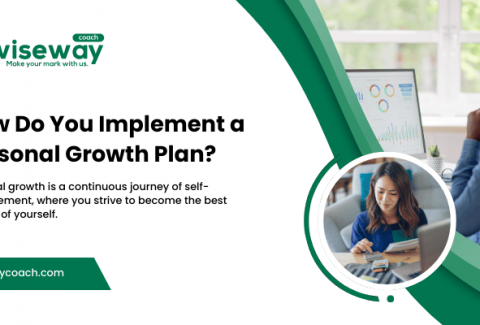What Are the Best Techniques for Self-Reflection?
September 4, 2024 2024-08-29 18:38What Are the Best Techniques for Self-Reflection?
In a world that’s constantly moving, it’s easy to lose sight of our thoughts, feelings, and behaviors. Self-reflection offers a vital pause, a moment to look inward and understand ourselves better. By regularly engaging in self-reflection, we can gain valuable insights that guide us toward personal growth and more meaningful lives. Here are some of the best techniques for effective self-reflection.
1. Journaling
Daily Journaling
Keeping a daily journal is one of the most effective ways to practice self-reflection. Writing about your experiences, thoughts, and feelings helps you process events and gain clarity. It allows you to track your progress over time and identify patterns in your behavior and emotions.
Prompted Journaling
If you find it challenging to start writing, use prompts to guide your reflections. Prompts such as “What am I grateful for today?”, “What did I learn today?”, or “What challenges did I face and how did I overcome them?” can help you delve deeper into your thoughts and experiences.
2. Meditation
Mindfulness Meditation
Mindfulness meditation involves focusing on the present moment without judgment. This practice can help you become more aware of your thoughts and feelings as they arise, allowing you to reflect on them more objectively. Regular mindfulness meditation can enhance your self-awareness and emotional regulation.
Guided Meditation
Guided meditation sessions, often available through apps or online platforms, can lead you through specific reflections. These sessions might focus on topics like self-compassion, gratitude, or personal growth, providing a structured way to engage in self-reflection.
3. Self-Assessment Tools
Personality Tests
Personality tests such as the Myers-Briggs Type Indicator (MBTI) or the Big Five Personality Traits can offer insights into your personality and behavior. Understanding your personality traits can help you reflect on how they influence your interactions and decisions.
Strengths Assessments
Tools like the CliftonStrengths assessment identify your natural talents and strengths. Reflecting on your strengths can help you understand how to leverage them in various aspects of your life, from career development to personal relationships.
4. Mind Mapping
Visualize Your Thoughts
Mind mapping is a visual technique that helps organize your thoughts and ideas. Start with a central concept or question and draw branches to related ideas or reflections. This method can help you see connections between different thoughts and identify underlying themes.
Problem-Solving
Use mind maps to explore solutions to challenges you face. By visually breaking down a problem and considering various angles, you can gain a more comprehensive understanding and generate innovative solutions.
5. Reflective Practice
After-Action Reviews
After completing a project or experiencing a significant event, conduct an after-action review. Ask yourself what went well, what didn’t, and what you could do differently next time. This structured reflection helps you learn from your experiences and improve future performance.
Feedback Sessions
Seek feedback from others and reflect on it. Whether it’s from colleagues, mentors, or friends, external perspectives can provide valuable insights into your behavior and performance. Reflecting on this feedback can help you identify areas for growth and development.
6. Setting Goals and Reviewing Them
SMART Goals
Set SMART goals (Specific, Measurable, Achievable, Relevant, Time-bound) and regularly review your progress. Reflecting on your goals helps you stay focused and motivated, and it provides an opportunity to adjust your actions if needed.
Milestone Reflections
Break down your goals into smaller milestones and reflect on your progress at each stage. Celebrating small wins and learning from setbacks can keep you engaged and committed to your long-term objectives.
7. Creative Expression
Art and Music
Engaging in creative activities such as drawing, painting, or playing music can facilitate self-reflection. These activities allow you to express your emotions and thoughts in non-verbal ways, providing a different perspective on your inner experiences.
Writing
Beyond journaling, writing essays, poetry, or stories can also be a reflective practice. Creative writing allows you to explore your thoughts and feelings in a more expansive and imaginative way, leading to deeper insights.
8. Solitude and Nature
Time Alone
Spending time alone, away from distractions, can enhance self-reflection. Whether it’s through a quiet walk, a solo retreat, or simply sitting in a peaceful environment, solitude provides the mental space to process your thoughts and emotions.
Nature Immersion
Connecting with nature can have a calming and grounding effect. Activities like hiking, gardening, or simply sitting in a park can help you reflect on your life and gain a fresh perspective.
9. Spiritual Practices
Prayer
For those who are religious or spiritual, prayer can be a powerful form of self-reflection. It provides a way to connect with your beliefs and values, seek guidance, and reflect on your life’s purpose.
Contemplation
Contemplative practices, such as reading spiritual texts or engaging in philosophical discussions, can deepen your self-awareness and understanding of the world. Reflecting on these readings or discussions can lead to profound personal insights.
Conclusion
Self-reflection is a transformative practice that can lead to greater self-awareness, improved decision-making, and a more fulfilling life. By incorporating techniques such as journaling, meditation, self-assessment tools, mind mapping, reflective practice, goal setting, creative expression, solitude, nature immersion, and spiritual practices, you can explore your inner world and unlock your full potential. Remember, the journey of self-reflection is ongoing, and each technique offers unique benefits that can contribute to your personal growth and well-being.


